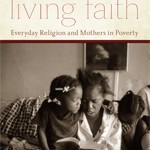I was in the room several years ago when discussions with students of sexual behavior, fertility, and family were solicited from the leadership at the National Campaign to Prevent Teen Pregnancy about expanding their mission to include combatting unplanned pregnancies, following upon the widely-documented success in helping diminish teen pregnancy rates by 30 percent (which most of us recognize as a good thing.) Given that organizations are “conservative” by nature—that is, they seek to survive, even if it means shifting gears or purposes—it was not a surprise that the National Campaign decided to add “and Unplanned Pregnancy” to their title and purpose.
I had intended to blog about unplanned pregnancies for some time, and that time accelerated when last week I noticed a letter to Carolyn Hax—the Ann Landers for educated, white upper-middle-class types—that addressed this very subject. I seldom care what Carolyn actually advises; the important thing in advice columns is what people want advice about. That is a window into the human quest to be and feel normal. Like all of us social creatures, people look around them for what they ought to want and feel and think, and sometimes they simply ask.
Dear Carolyn: Found out a few weeks ago that I am pregnant at 42! Have one kid, almost 8, who is a complete joy. Husband has made quite clear he does not want this baby because it was not planned and he doesn’t want to work forever. I am feeling like it is a miracle after four years of fertility treatments and finally giving up two years ago. I don’t want to be selfish but really want this baby. But then I keep seeing moms with kids and wonder, is it selfish to be so old with a young child and to go against what my husband wants?
A key part of the problem here, she asserts, is that the pregnancy was not planned. Now, this is certainly not a new subject or concern. For some data perspective…in 2001, 49 percent of pregnancies in the United States were unintended, according to data analyses using the National Study of Family Growth, a reputable source of information. I put a research assistant onto the task of updating that statistic, and he informed me that his best estimate using data from 2005-2010 in the same study is 44 percent. Don’t read too much into the minor dip; it could be subjective measurement decisions with the data. (My RA got 43 percent when he calculated the older estimate, down from their 49 percent). Regardless, the point is that almost half of American pregnancies are unintended or unplanned, and that hasn’t changed much. And apparently that’s a shame.
This shift in discourse of late away from reducing teen pregnancies—a fairly intelligent, no-brainer goal—to reducing unplanned pregnancies continues to grate upon me years after The National Campaign added it. (I don’t actually mean to single them out.) It’s not simply a subtle and neutral turn of phrase, but instead indicates a larger push for social change around conception and childbearing, one that reaches well past teen pregnancies to adult ones as well. Although the Campaign is focused on unmarried adults, the discourse can and does spill over into marriage, as the advice column suggests.
As sociologist of culture James Hunter tells it, culture change is a work of legitimation and deligitimation, of naming one thing normal and right and its competition deviant, stupid, inferior, ridiculous, or just plain wrong. At bottom, culture is the power of “legitimate naming.” Indeed, we have named “unintended” pregnancies into a social problem. The term—as Hunter describes the process—has penetrated the structure of our imagination, our frameworks for how we think and converse, and our perceptions of what normal reality should look like (hint: “planned”). The reality remains, however, that “unintended” characterizes 44 percent of pregnancies.
Such naming is a form of power. The advice-seeker quoted above can attest to that. She reports feeling selfish when she should feel supported. (Why would motherhood ever be considered selfish? It is nearest the very definition of selflessness.) Instead, she senses that her husband has claimed the moral high ground by appealing to their lack of planning. To publicly (rather than privately) distinguish between pregnancies by labeling them as “unintended” or “unplanned” lends—if even only tacitly or incidentally—a morally-suboptimal status to them. And from there…
Two of my three children were altogether unintended and unplanned, and frankly genuine surprises. Perhaps we exhibited a “lack of planning and control.” (Isn’t that what the sexual union between husband and wife ought to exhibit with some regularity?) I am reminded of the hilariously sad narrative of relationship life embedded in the short entitled I Guess You’ll Do: “I will take the fun out of sex by incorporating science…” No, there is something still humanly good about mystery and surprise. A walk-off home run in the bottom of the ninth inning, an unexpected note, a phone call from an old friend, heck even cancer is better off as a surprise—who would want to see that coming?
Planned (56%) or not (44%), few people regret having children. To be sure, they may prefer a different timetable or more stable circumstances—and that is certainly understandable and worthy of empathy—but most don’t look at their children and wistfully wish that they did not exist.
Teen pregnancy may be a social problem. Poverty is. Increasing inequality is. But unplanned pregnancy is not a social problem per se. At least not until it has become so in the mind of a critical mass. We’re certainly on our way there.















